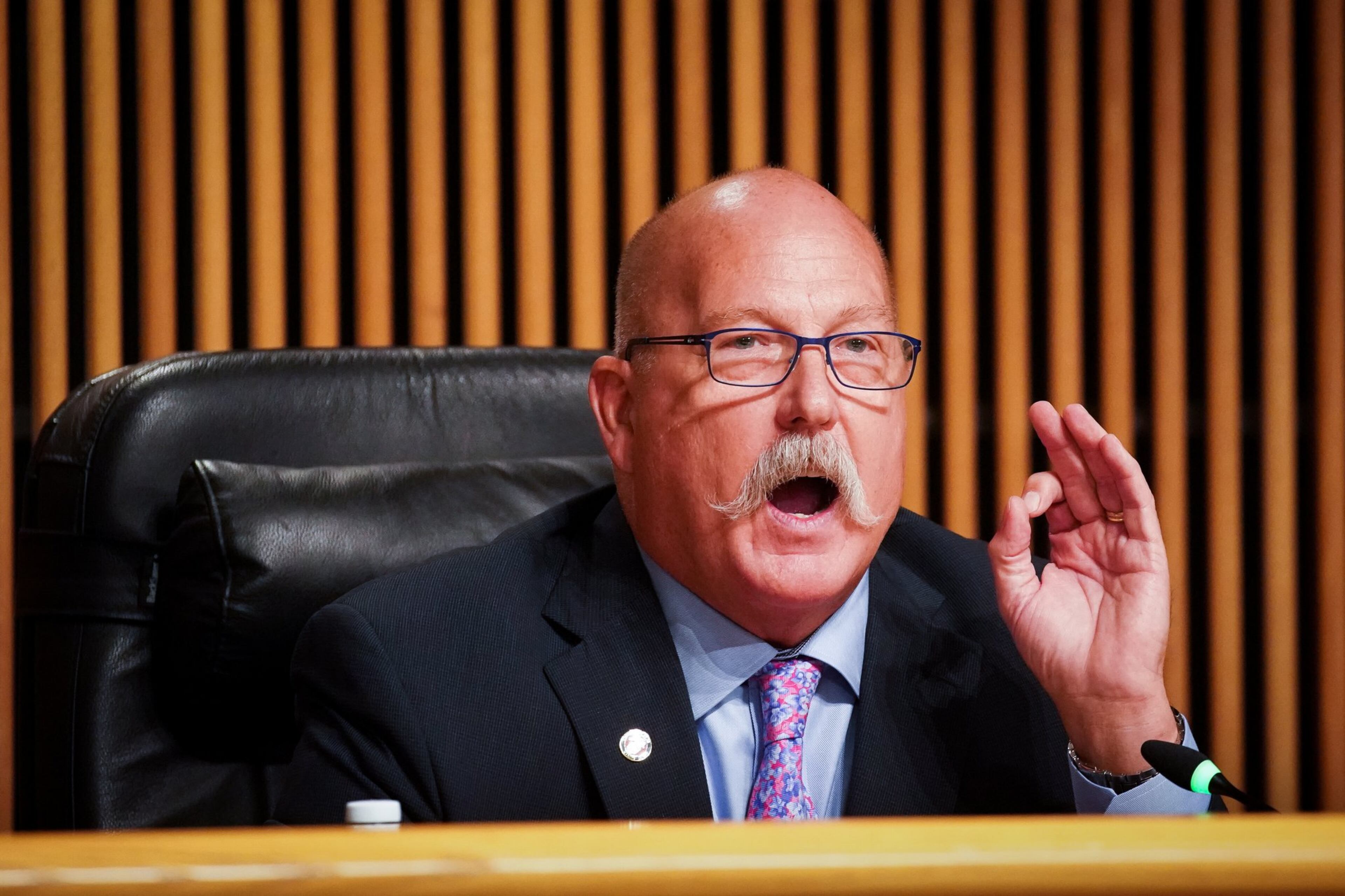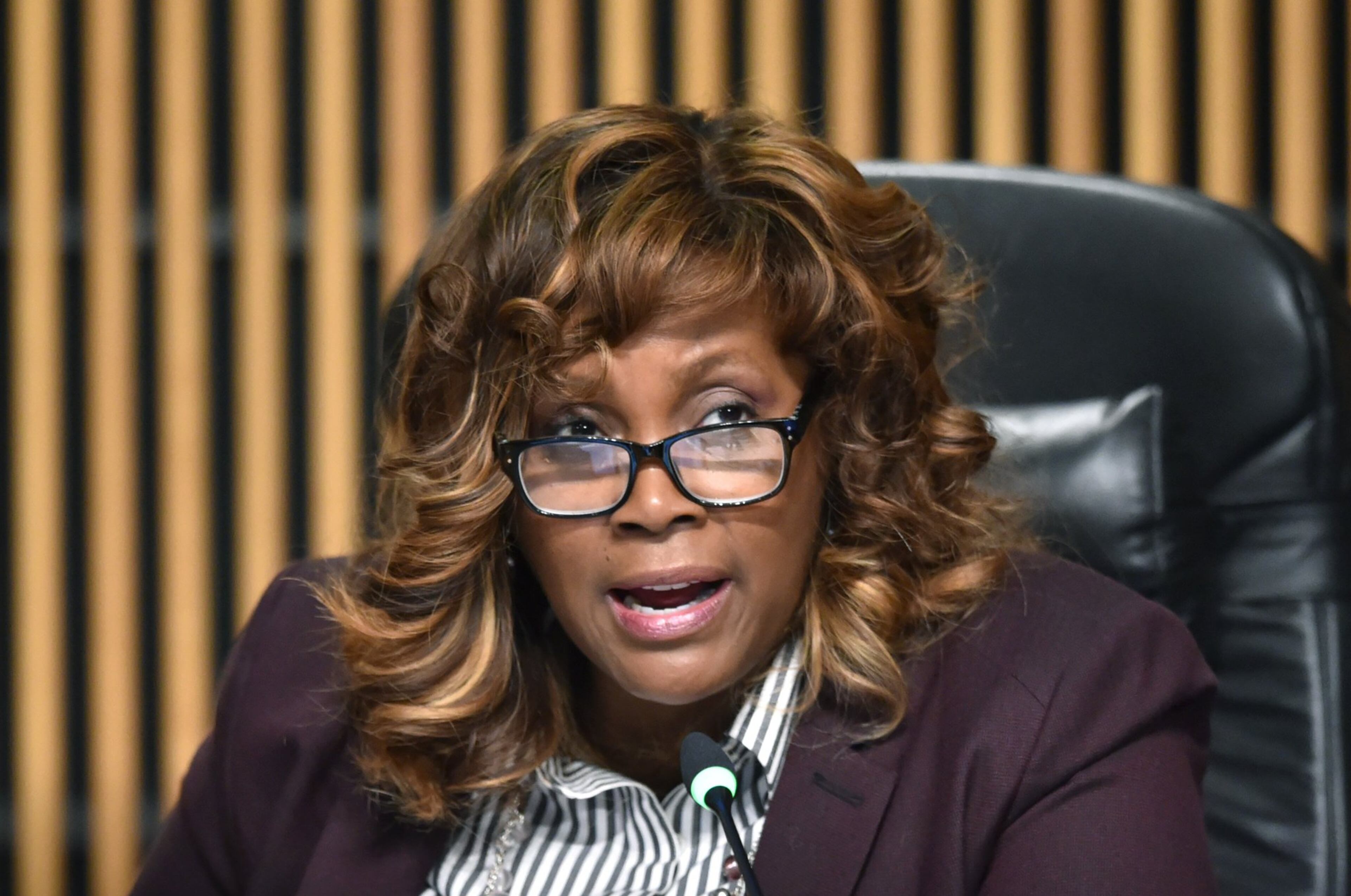Hearing date set for ethics complaint against Gwinnett commissioner

The first meeting of the ethics board weighing a complaint against Gwinnett Commissioner Marlene Fosque was largely uneventful. But a potential timeline for the panel’s work became more clear.
The most important meeting in the process — an evidentiary hearing expected to feature evidence and testimony from both sides — will be held Dec. 19.
The ethics complaint against Fosque, a Democrat in her first year in office, was filed in August by D.A. King. King is the controversial founder of an anti-illegal immigration group called the Dustin Inman Society.
In July, King participated in a forum that Fosque organized to discuss the Gwinnett sheriff's participation in a divisive federal immigration enforcement program known as 287(g). Fosque later denounced King as "someone known for spewing hatred and bigotry and racism."
King's subsequent ethics complaint accuses Fosque of defamation. It also accuses Fosque of violating six tenets of Gwinnett's ethics ordinance.

The ordinance was created in 2011 and is primarily aimed at rooting out corruption and preventing conflicts of interest. But it also includes more general guidelines about the behavior of public officials and employees.
The five-member ethics board assembled to hear the Fosque complaint held its first meeting Wednesday morning in a conference room at the Gwinnett Justice and Administration Center. The gathering was mostly procedural.
Local attorney David Will, who also served on the ethics board that investigated a 2017 complaint against Gwinnett Commission Tommy Hunter, was voted chairman of the panel.
Neither King nor Fosque were at Wednesday morning’s meeting.
Steve Reilly, an attorney representing Fosque in the ethics proceedings, was present. He said he would be filing a formal response to the complaint within the allotted 30-day period but otherwise declined to comment.
The ethics board could reach a conclusion about the complaint shortly after the December hearing — but the panel is merely a recommending body. Fosque’s colleagues on the Board of Commissioners will weigh the ethics board’s findings before making a final decision on any punishment.
The stiffest punishment Fosque could receive is a public reprimand.




